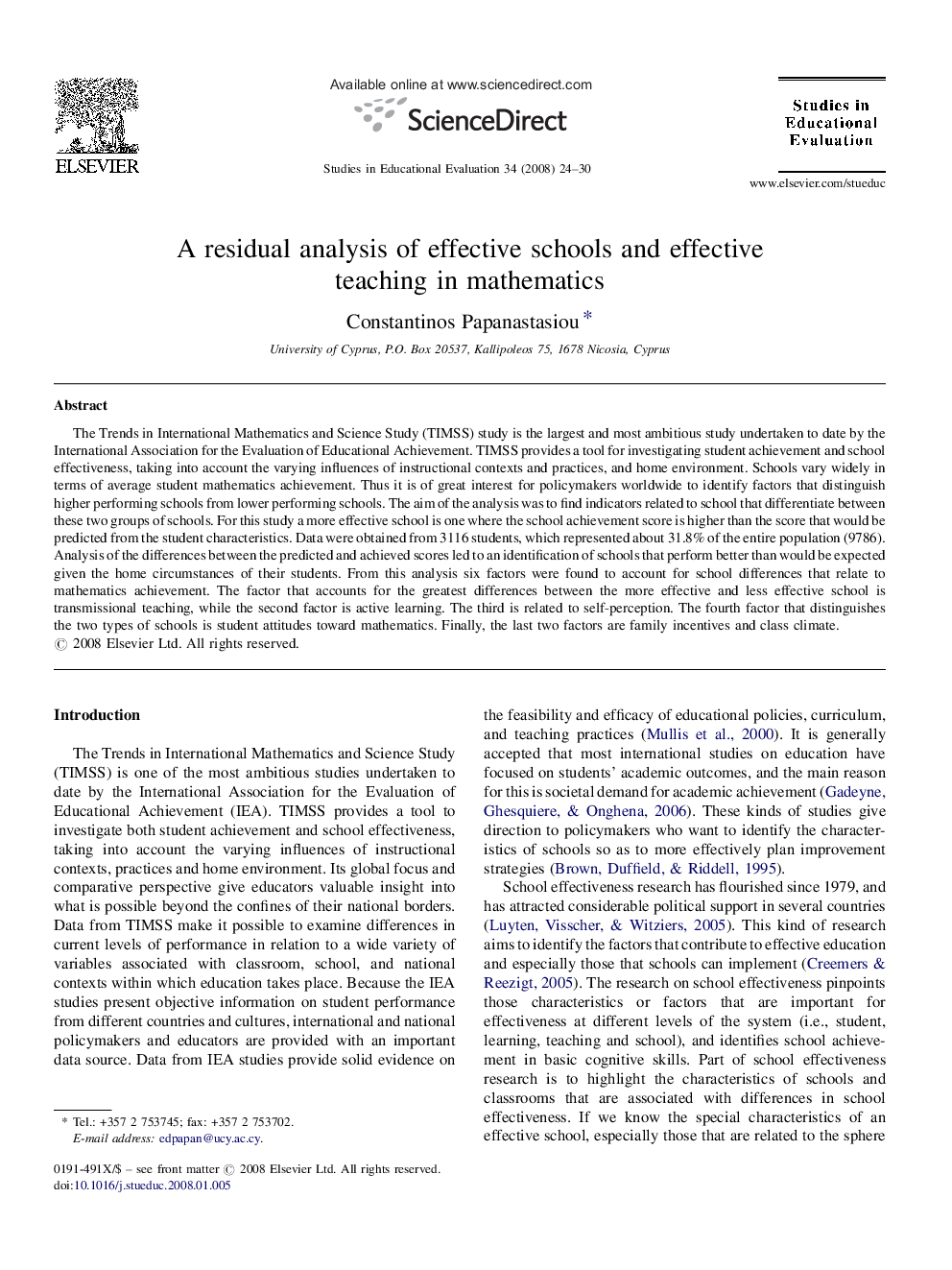| کد مقاله | کد نشریه | سال انتشار | مقاله انگلیسی | نسخه تمام متن |
|---|---|---|---|---|
| 372865 | 622169 | 2008 | 7 صفحه PDF | دانلود رایگان |

The Trends in International Mathematics and Science Study (TIMSS) study is the largest and most ambitious study undertaken to date by the International Association for the Evaluation of Educational Achievement. TIMSS provides a tool for investigating student achievement and school effectiveness, taking into account the varying influences of instructional contexts and practices, and home environment. Schools vary widely in terms of average student mathematics achievement. Thus it is of great interest for policymakers worldwide to identify factors that distinguish higher performing schools from lower performing schools. The aim of the analysis was to find indicators related to school that differentiate between these two groups of schools. For this study a more effective school is one where the school achievement score is higher than the score that would be predicted from the student characteristics. Data were obtained from 3116 students, which represented about 31.8% of the entire population (9786). Analysis of the differences between the predicted and achieved scores led to an identification of schools that perform better than would be expected given the home circumstances of their students. From this analysis six factors were found to account for school differences that relate to mathematics achievement. The factor that accounts for the greatest differences between the more effective and less effective school is transmissional teaching, while the second factor is active learning. The third is related to self-perception. The fourth factor that distinguishes the two types of schools is student attitudes toward mathematics. Finally, the last two factors are family incentives and class climate.
Journal: Studies in Educational Evaluation - Volume 34, Issue 1, March 2008, Pages 24–30